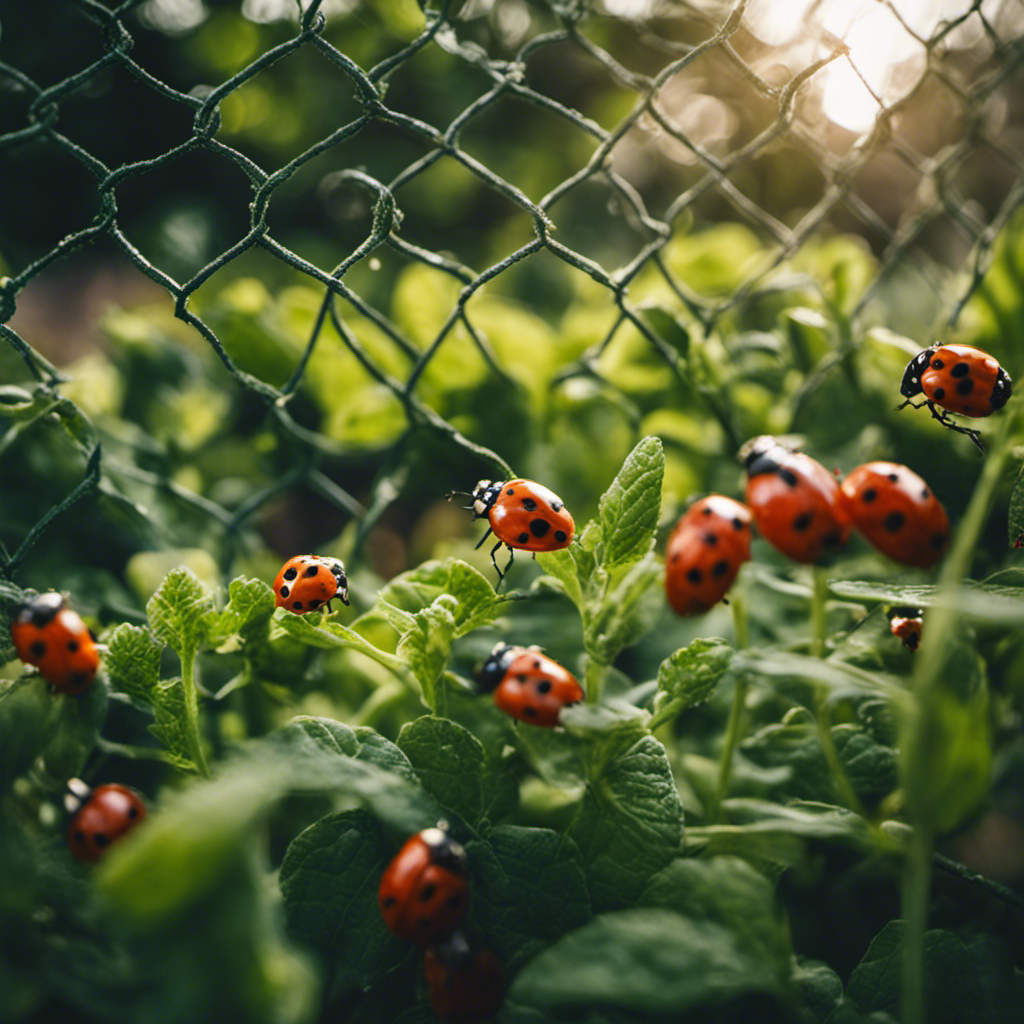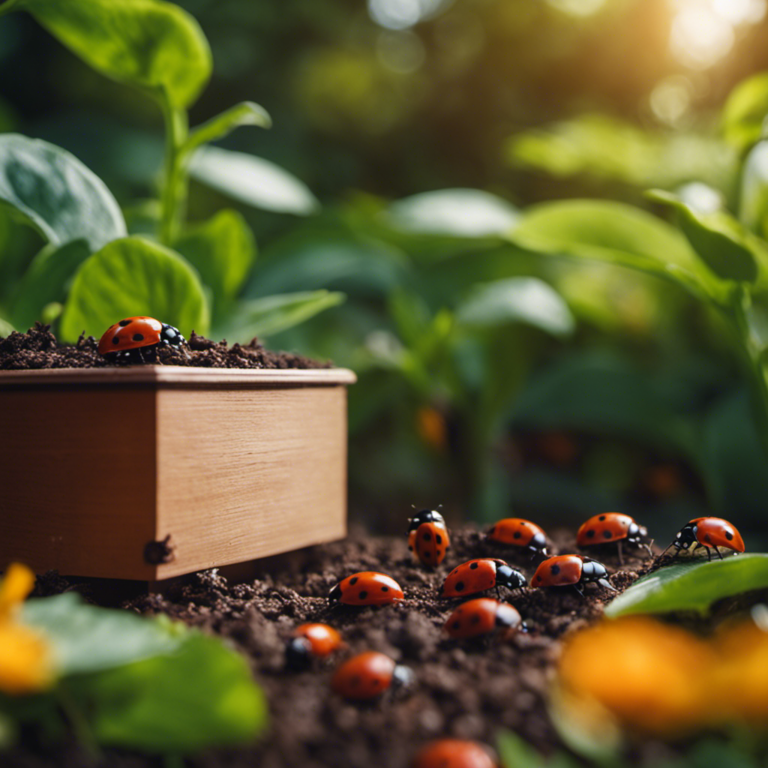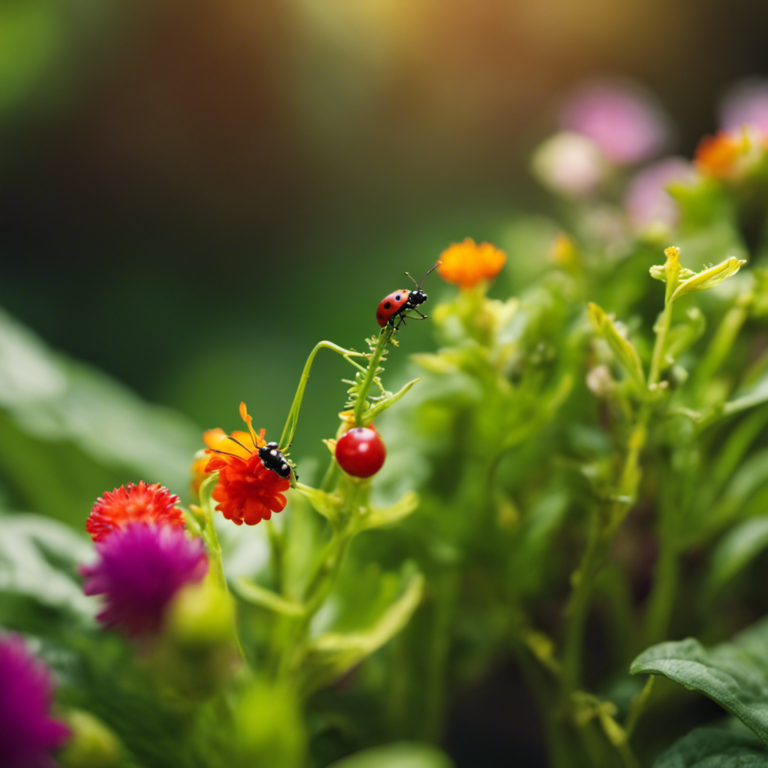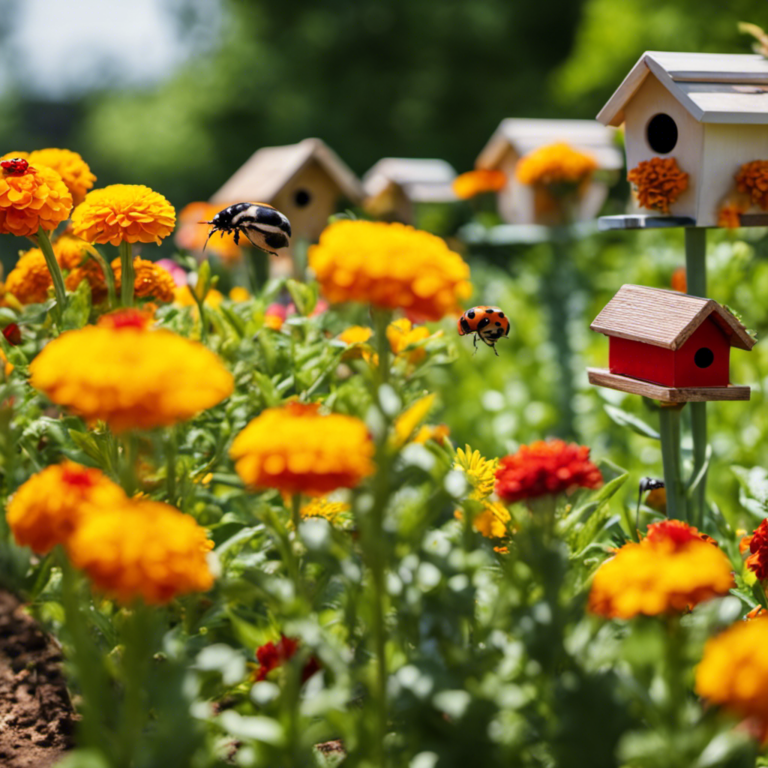Is your edible garden under attack from pests? You’re not alone. Did you know that more than 90% of gardeners struggle with pest control? But don’t worry, there’s hope!
In this article, we’ll share effective pest control methods to protect your beloved garden. From natural insect repellents to beneficial insects and homemade solutions, we’ve got you covered.
Get ready to reclaim your garden and enjoy a bountiful harvest like never before. As the saying goes, ‘A well-protected garden is a thriving garden.’
Key Takeaways
Protecting your edible garden from pests is crucial for a successful harvest. By using natural methods like insect repellents, beneficial insects, homemade pest control solutions, companion planting, and physical barriers and traps, you can effectively safeguard your plants.
It’s important to keep in mind that maintaining a thriving garden requires dedicated pest control methods. So, take action now to ensure the health and abundance of your edible garden.
Stay tuned for more tips and techniques to help your garden flourish.
Natural Insect Repellents

Protecting your edible garden from pests can be done using natural insect repellents. These repellents are effective in keeping unwanted insects away without the use of harmful chemicals.
One option is to use essential oils derived from plants, which have natural insect-repelling properties. For instance, peppermint oil can deter ants and spiders, while citronella oil is effective against mosquitoes.
Another option is organic pesticides made from natural ingredients that are safe for the environment. These pesticides can control pests like aphids, caterpillars, and beetles.
Beneficial Insects for Pest Control
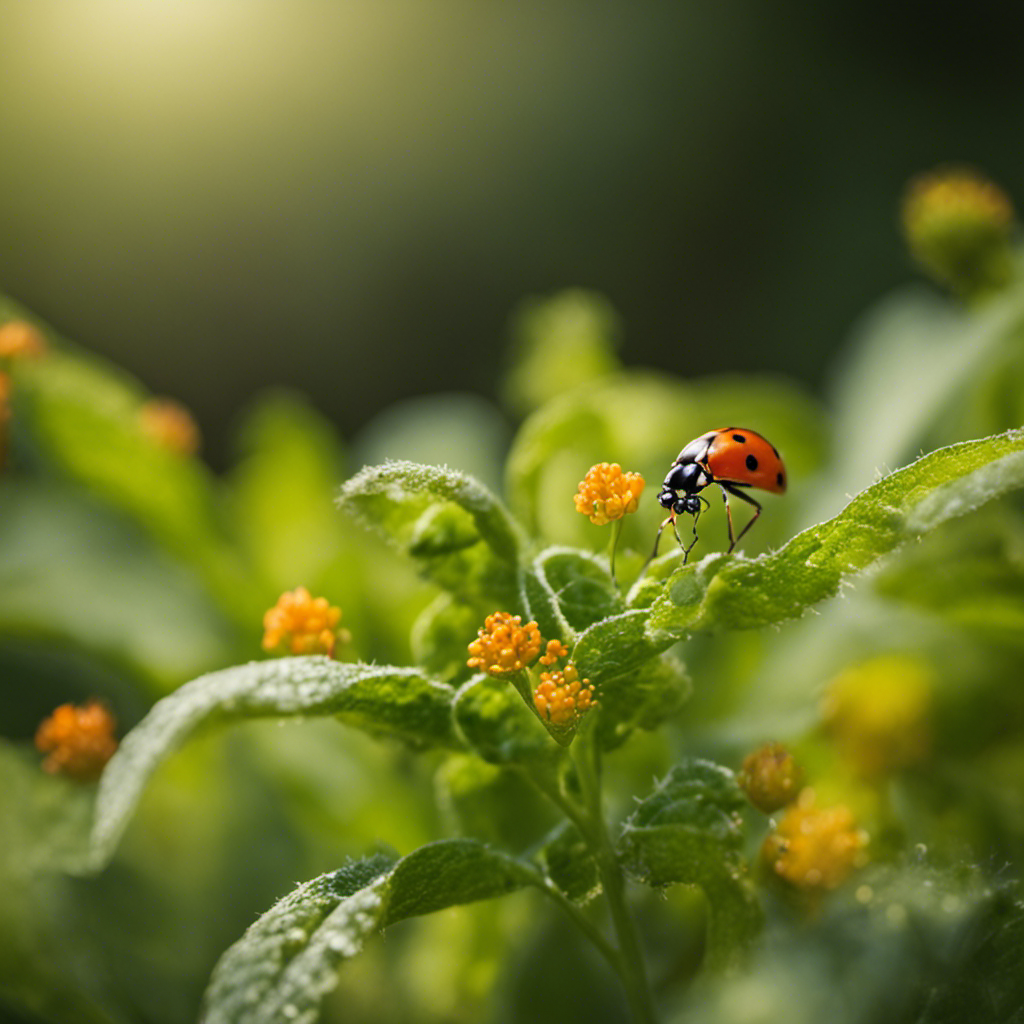
Enhancing pest control in your edible garden can be achieved by harnessing the power of beneficial insects. These insects act as natural predators to the pests that can harm your crops, offering a sustainable and eco-friendly method of pest control.
Here are four effective ways to attract beneficial insects to your garden:
-
Plant a diverse range of flowers and herbs that attract predators like ladybugs, lacewings, and hoverflies. These insects feed on aphids, mites, and other common garden pests.
-
Create habitats such as bug hotels, rock piles, and brush piles to provide shelter for beneficial insects.
-
Avoid using broad-spectrum pesticides that can harm beneficial insects. Instead, opt for targeted treatments that only affect specific pests.
-
Utilize biological control methods, such as releasing beneficial insects or using microbial insecticides, to disrupt pest populations.
Homemade Pest Control Solutions
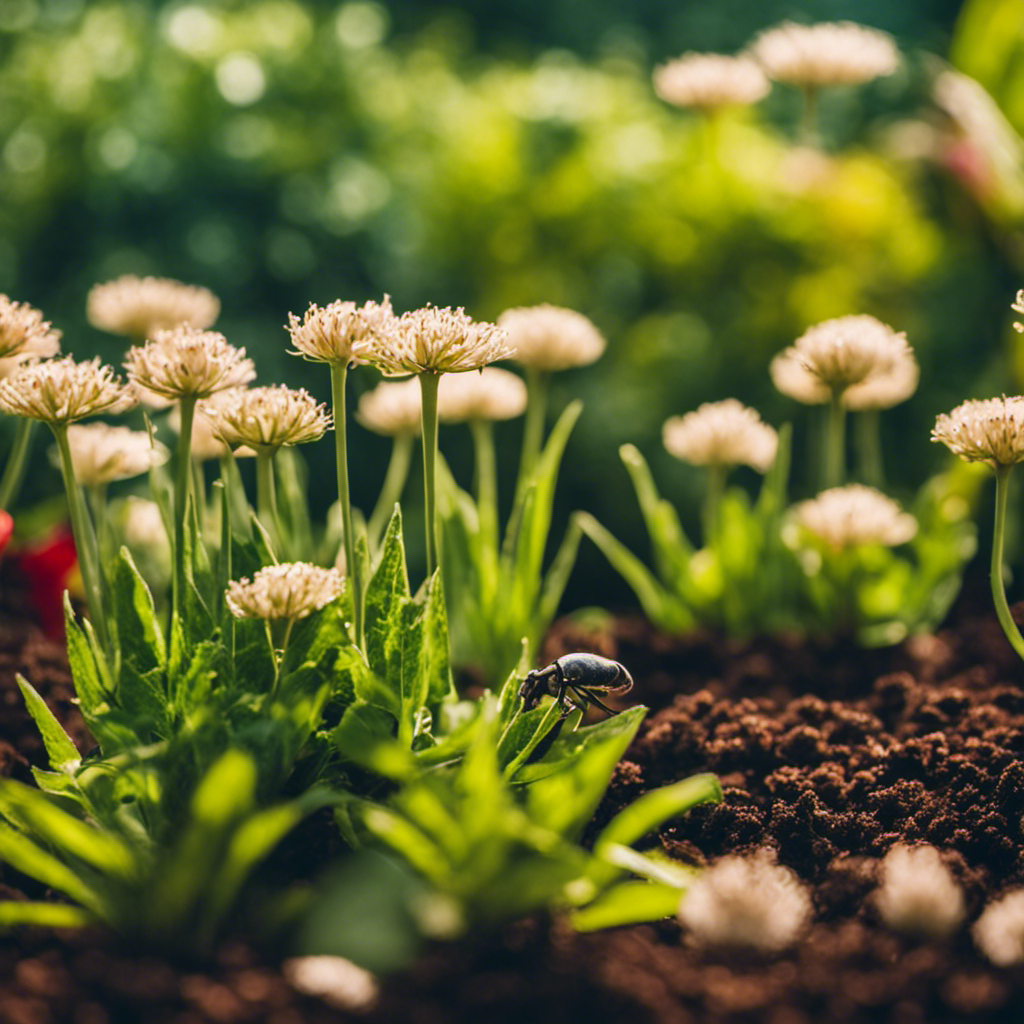
Protect your garden from pests with homemade remedies.
When it comes to pest control, you don’t have to rely on expensive and potentially harmful chemicals. There are natural and effective solutions right in your kitchen cabinet.
Essential oils can be a great option for repelling pests. For example, peppermint oil has been found to deter ants, spiders, and even mice. You can easily create a homemade spray by mixing a few drops of peppermint oil with water and applying it around your garden.
Another popular choice for pest control is vinegar. Vinegar has been shown to repel pests like slugs and aphids. To make a vinegar solution, simply mix equal parts vinegar and water in a spray bottle and apply it to your plants. The strong scent will help keep pests away.
Companion Planting for Pest Management
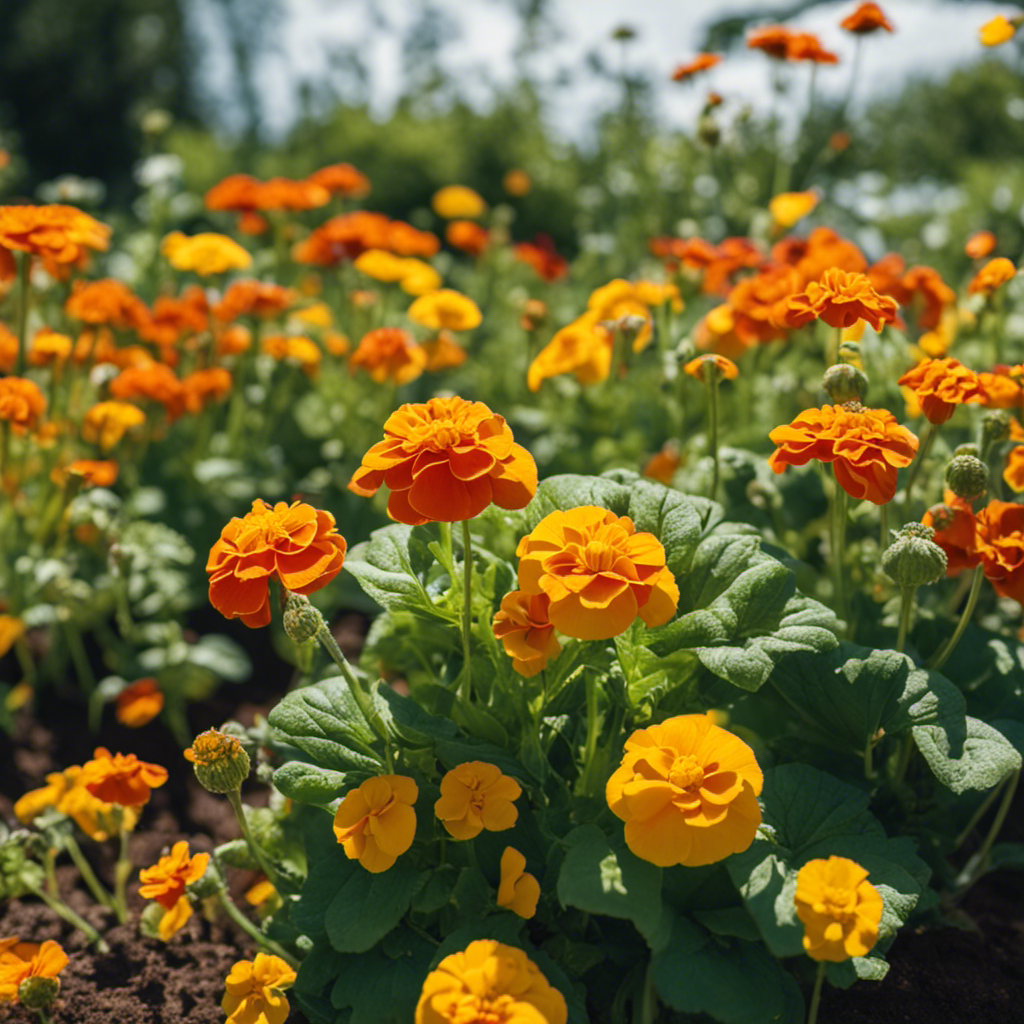
Companion Planting for Natural Pest Management
One effective method for managing pests in your edible garden is through the practice of companion planting. By strategically planting certain plants together, you can naturally deter pests and promote a healthy ecosystem in your garden.
Here are four ways companion planting can help you control pests organically:
-
Crop rotation for pest prevention: Rotating different crops in your garden disrupts the life cycle of pests, preventing them from building up populations and reducing the risk of infestations.
-
Interplanting pest-repellent plants: Some plants have natural pest-repellent properties. By interplanting them with susceptible crops, you can deter pests and protect your plants.
-
Attracting beneficial insects: Certain companion plants attract beneficial insects like ladybugs and lacewings, which feed on pests. These insects act as natural predators, keeping pest populations in check.
-
Masking scents: Companion plants with strong scents can mask the scent of crops, making it harder for pests to locate them.
Physical Barriers and Traps
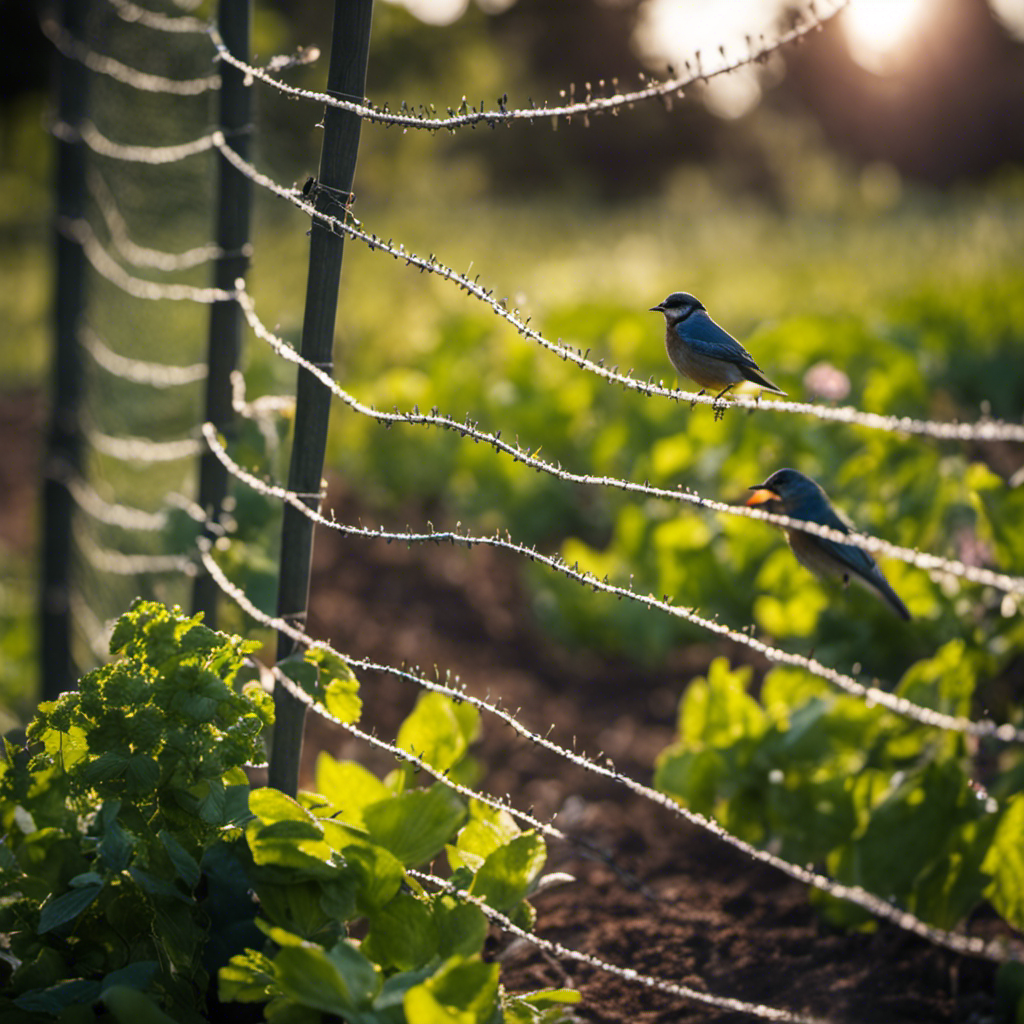
Using physical barriers and traps is an effective method for protecting your edible garden from pests. Integrated pest management and organic pest control focus on non-toxic and environmentally friendly techniques.
Physical barriers, like fences, nets, and row covers, can create a protective barrier between your plants and pests, preventing damage to your crops.
Traps are another useful tool for controlling pests. For instance, sticky traps can catch flying insects, while pheromone traps attract and capture specific pests such as fruit flies.
Conclusion
Safeguarding your edible garden from pests is essential for a successful harvest. By using natural insect repellents, beneficial insects, homemade pest control solutions, companion planting, and physical barriers and traps, you can effectively protect your plants.
It’s important to remember that a thriving garden requires uncompromising pest control methods. So, take action now to ensure the health and abundance of your edible garden.
Stay tuned for more tips and techniques to keep your garden thriving.
